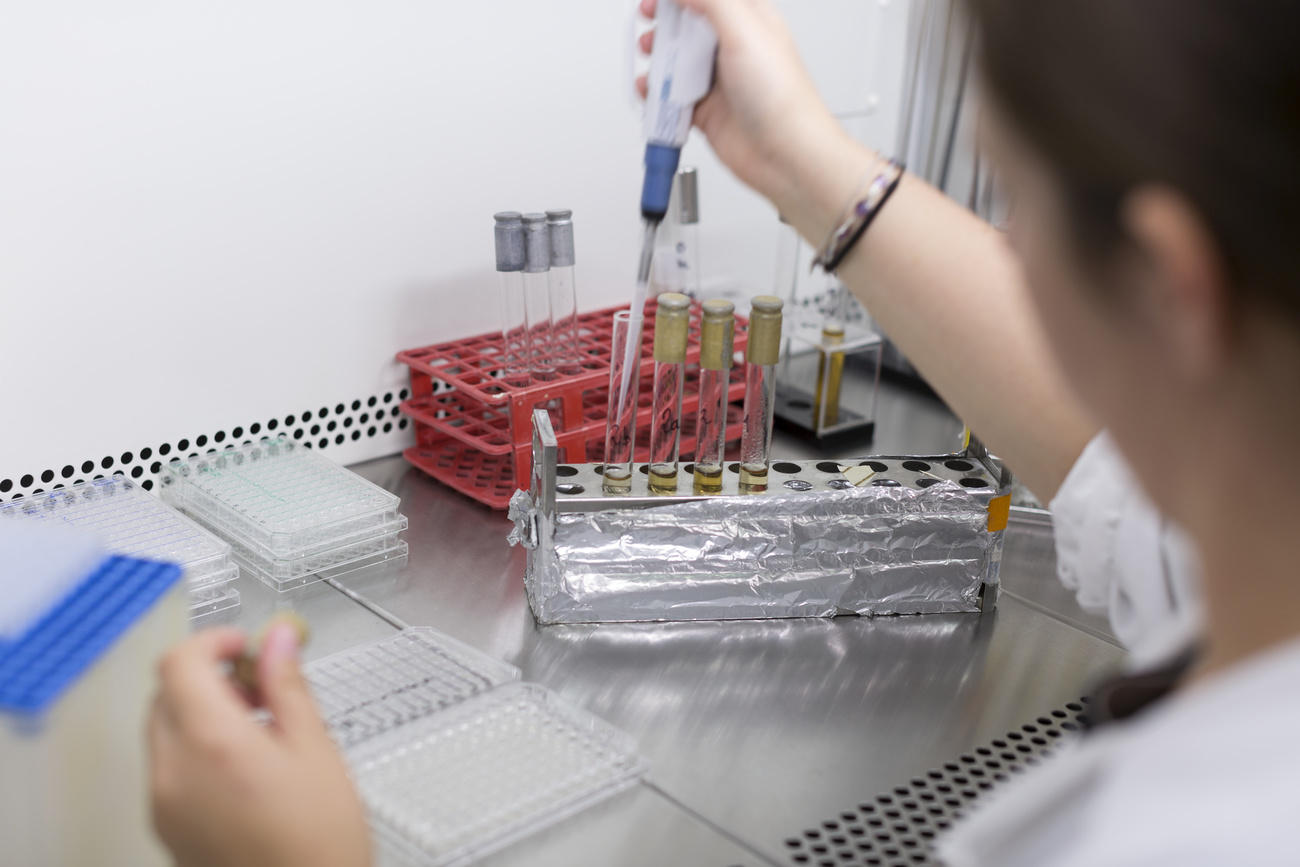
Scientists redesign virus to target specific bacteria

Zurich scientists have succeeded in “re-programming” a bacteria-killing virus to make it attack a different target instead of its usual prey.
The method is still in its infancy, but could have consequences for a more targeted tackling of bacterial infections, the Swiss Federal Technology Institute ETH Zurich wrote on MondayExternal link.
Essentially, the scientists managed to manipulate the behaviour of a certain virus that survives and propagates through attacking specific bacteria cells.
By identifying the features of the “anti-Listeria” bacteriophage (a type of virus), then adapting it by adding similar but different features from other bacteriophages, the researchers made it head for a different layer of the Listeria bacteria than the one it usually attacks.
The advantage of this approach is that it allows a very precise targeting of pathogenic bacteria, ETH wrote, especially when compared to standard antibiotics. The latter are indiscriminate in attacking both good and bad bacteria.
Moreover, bacteria can build up a resistance to antibiotics over time, something that this targeted system also gets around.
Although bacteriophage therapy was used successfully in one recent case – that of an American teenager suffering from cystic fibrosis who had contracted a severe infection – the ETH scientists say that a large-scale use of the method is not going to happen soon.
The research was publishedExternal link in the scientific journal “Cell Reports”.

In compliance with the JTI standards
More: SWI swissinfo.ch certified by the Journalism Trust Initiative






























You can find an overview of ongoing debates with our journalists here . Please join us!
If you want to start a conversation about a topic raised in this article or want to report factual errors, email us at english@swissinfo.ch.